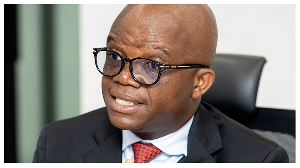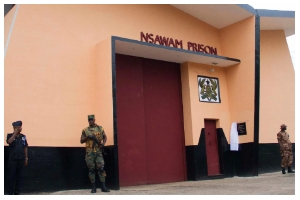Accra, Jan. 22, GNA - President John Evans Atta Mills, noting the repercussions of the Ivorian crisis on African democracies, has repeated Ghana's position of non-interference in the internal matters of sister African countries.
He made it clear that Ghana's stance had been misrepresented in certain quarters, and it was untrue that Ghana was taking sides in the continuing stand-off in the neighbouring nation.
He said Ghana had also not reneged on its commitment to ECOWAS in the quest for peace in La Cote d'Ivoire.
President Mills repeated Ghana's position on the Ivorian crisis at this year's exchange of greetings with members of the Diplomatic Corps in Ghana, held at the Flagstaff House in Accra.
He stressed the need to handle the Ivorian crisis with the greatest care.
".the situation in Cote d'Ivoire poses a tremendous challenge to our efforts at consolidating democracy through free and fair means elections in Africa," President Mills said, adding that Ghana fully supported Mr Allassane Ouattara, the main contender to Mr Laurent Koudou Gbagbo as the winner in the last Ivorian presidential polls.
Ghana also supports sanctions being applied on La Cote d'Ivoire, but based on the advice from the Ghana Military High Command the country was not in a position to send troops in the event of military action.
Ghana already had 500 of its troops serving in Cote d'Ivoire, guarding Ouattara under the UN, and had no intent to withdraw them.
"Ghana is deeply concerned about the situation in Cote d'Ivoire.
"The Ivorian crisis needs to be handled with the greatest care," President Mills said, with an assurance that "Ghana remains steadfastly committed to a just and durable peace not only in Cote d'Ivoire but in any part of the world where peace is threatened."
While giving glory to God for his goodness to the nation, President Mills assured the Diplomatic Community of continued hospitality and support in providing them with the necessary conditions to enable them to successfully accomplish their assignments.
He recalled strides the nation made in the past year as considerable economic progress, with a record of single digit inflation under just a year and half under his administration, stable currency, lowest ever prime rate, increasing Gross Domestic Product and greater agricultural output, with Ghana being on the verge of a substantial economic advancement.
Ghana also joined the league of oil producing countries in 2010; and the President reiterated that Government would remain faithful to its resolve to make the production of oil a blessing rather than a curse.
"Under my watch, every pesewa that accrues to the nation from our oil earnings will be accounted for" President Mills said.
The President spoke also of the sterling performance of the Black Stars in CAN 2010 in Angola and the FIFA World Cup Soccer Tournament in South Africa, and gave credit to the Stars for boosting Ghana's image by their spectacular performance.
"These developments underscore confidence with which I declared 2011 as Year of Action," President Mills said, and made a promise that Ghanaians would see a heavy physical manifestation of Government's Better Ghana programme.
He reiterated Government's commitment to deepening the bonds of cooperation with Ghana's foreign partner nations and organizations, and entreated the support of the Diplomatic Community in the Action Year of the Better Ghana Agenda.
Mr Tete Jean-Pierre Gbikpi-Benissan, Dean of the Diplomatic Corps, praised Ghana's laudable economic achievements over the past year.
He mentioned in particular the Savannah Accelerated Development Programme meant to bring down poverty in Northern Ghana, the STX Housing project to address housing deficit, Ghana attaining Middle Income Status, the Single Spine Salary Structure to secure earnings in the public sector.
Mr Gbipki-Benissan commended President Mills for his contributions within the ECOWAS and AU affairs as he pursued peace, dialogue and course of hospitality.
The Police Central Band provided music at the interaction, which was also attended by Members of the Council of State, Ministers of State, Members of Parliament, religious leaders, traditional rulers, among others.
General News of Saturday, 22 January 2011
Source: GNA
















